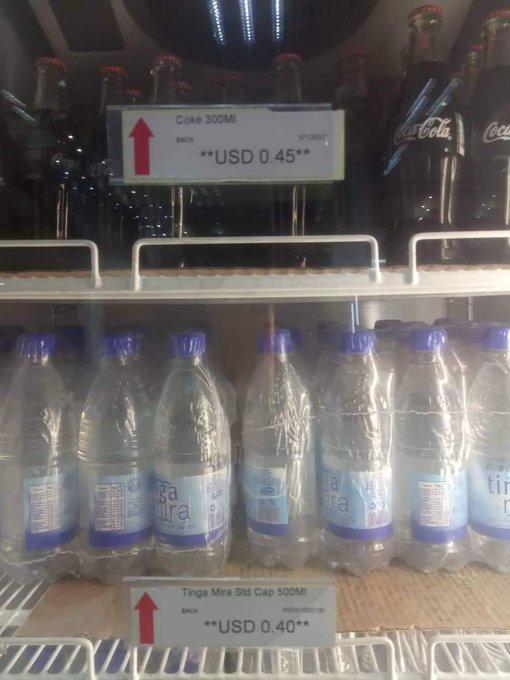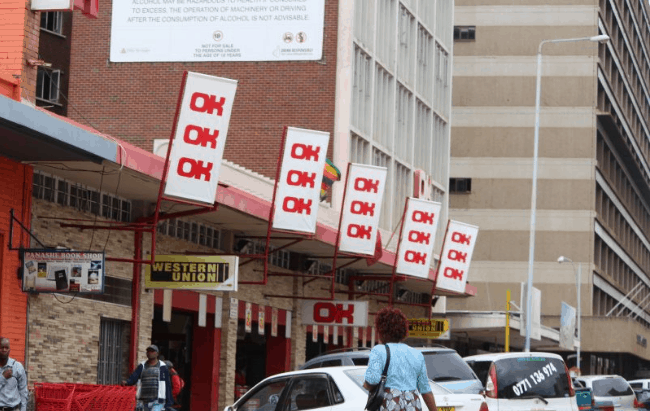In a move that could be seen as a confirmation of the official death of the country’s local currency Zimdollar, one of the biggest supermarket chain, OK Zimbabwe demanding US dollars only con selected products.
In a statement to its customers, the retail giant pointed out that all products marked with stars are priced in the green buck only.
The Zimdollar has for long been trading badly against the major convertible currencies, with market expect urging the government to fully dollarise.
One such voice is Professor Steve Hanke, who carries out currency analysis.


Meanwhile commenting on the development, renowned investigative journalist Hopewell Chin’ono had this to say:
Zimbabwe’s biggest supermarket group is no longer accepting the Zimbabwean currency on selected goods including water as seen in the attached pictures.
You see, I and many others predicted that this would happen, but we were labeled Western puppets by the regime and its incorrigible surrogates.
Zimbabwe has no meaningful industries that are still operating, it produces very little for export except underground minerals which are invariably plundered and smuggled out of the country by powerful ZANUPF political elites and their runners.
They bank the proceeds of their loot outside Zimbabwe.
Lack of industrial productivity has a massive impact on a country’s foreign exchange reserves.
When a country is less productive like Zimbabwe has become, it exports fewer goods and services resulting in lower income from exports.
This reduces the inflow of foreign currency into the country.
A decline in productivity as is the case in Zimbabwe results in increased imports because the country needs to rely more on foreign produced goods and technologies.
This accentuates the trade imbalance as more foreign currency is spent on imports than earned through exports.
We even import tooth picks and toilet paper from South Africa.
With a weakened trade balance, Zimbabwe is struggling to maintain sufficient foreign exchange reserves through a combination of corruption, theft, incompetence and failure to attract investment due to failed economic policies and lack of Rule of Law.
Investors don’t come to a country where the judiciary is captured, and where as a result of that capture they can’t get fair arbitration if there is a trade or commercial dispute.
Inadequate foreign exchange reserves result in failure to meet international obligations such as servicing debts and this results in currency devaluation and financial instability.
So these companies like OK Zimbabwe have foreign currency obligations that force them to charge in hard currency.
The real culprit is the Government of Zimbabwe with its corrupt rule which has made it impossible for the central bank to honour commercial foreign exchange applications.
When retailers reject the local currency, it leads to a loss of confidence in the local currency causing its further devaluation and also pushing up inflation.
Zimbabwe has the highest inflation in the world.
Inflation is the rate at which prices for goods and services rise within an economy over a specified period.
When inflation occurs, each unit of currency buys fewer goods and services than it did before.
The rejection of local currency affects those who primarily have access to or rely on that currency like civil servants and anyone who earns in Zimbabwe Dollars.
Zimbabwe has little room to manoeuvre, it has to dollarise but this won’t happen because it will stop ZANUPF elites from stealing public funds through the central bank where they manipulate rates.













